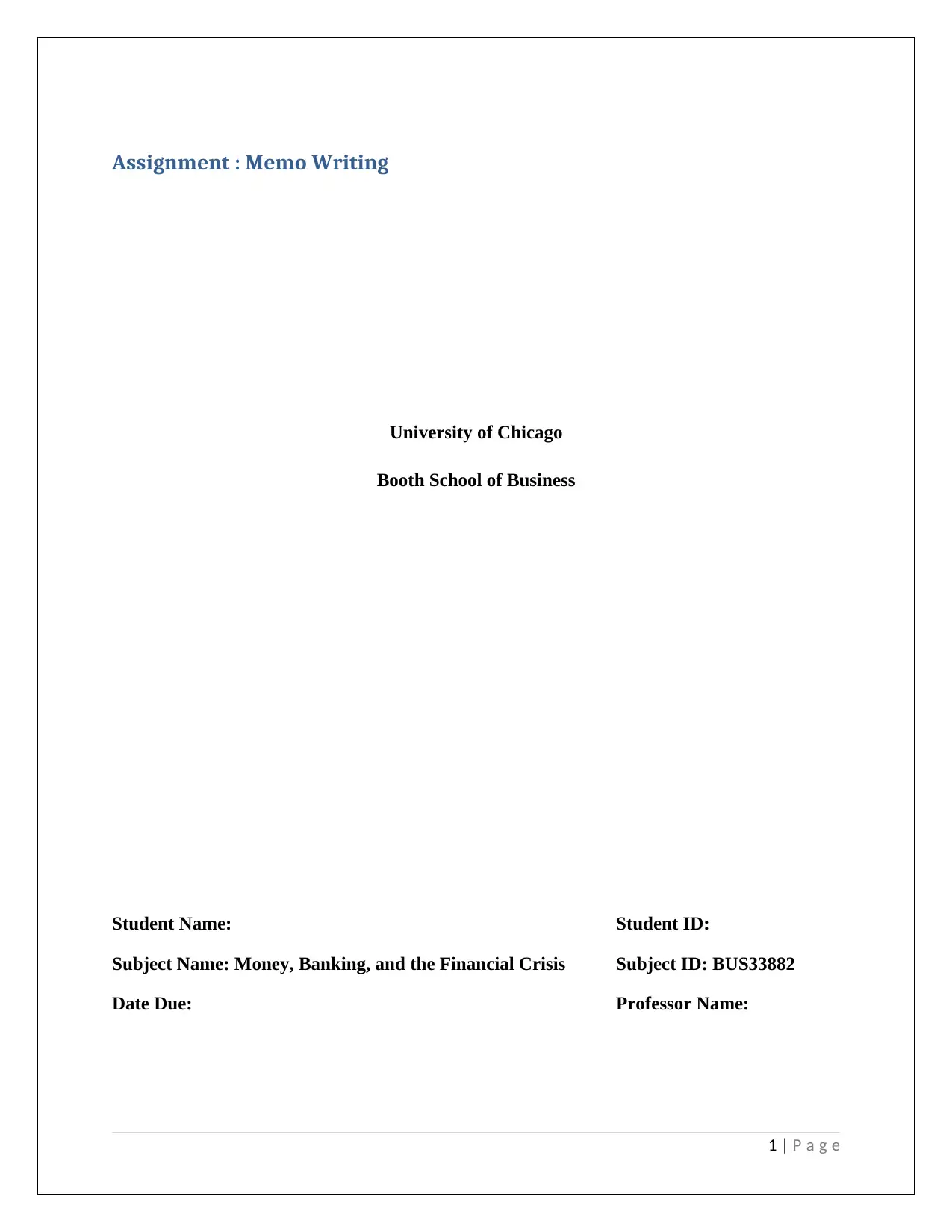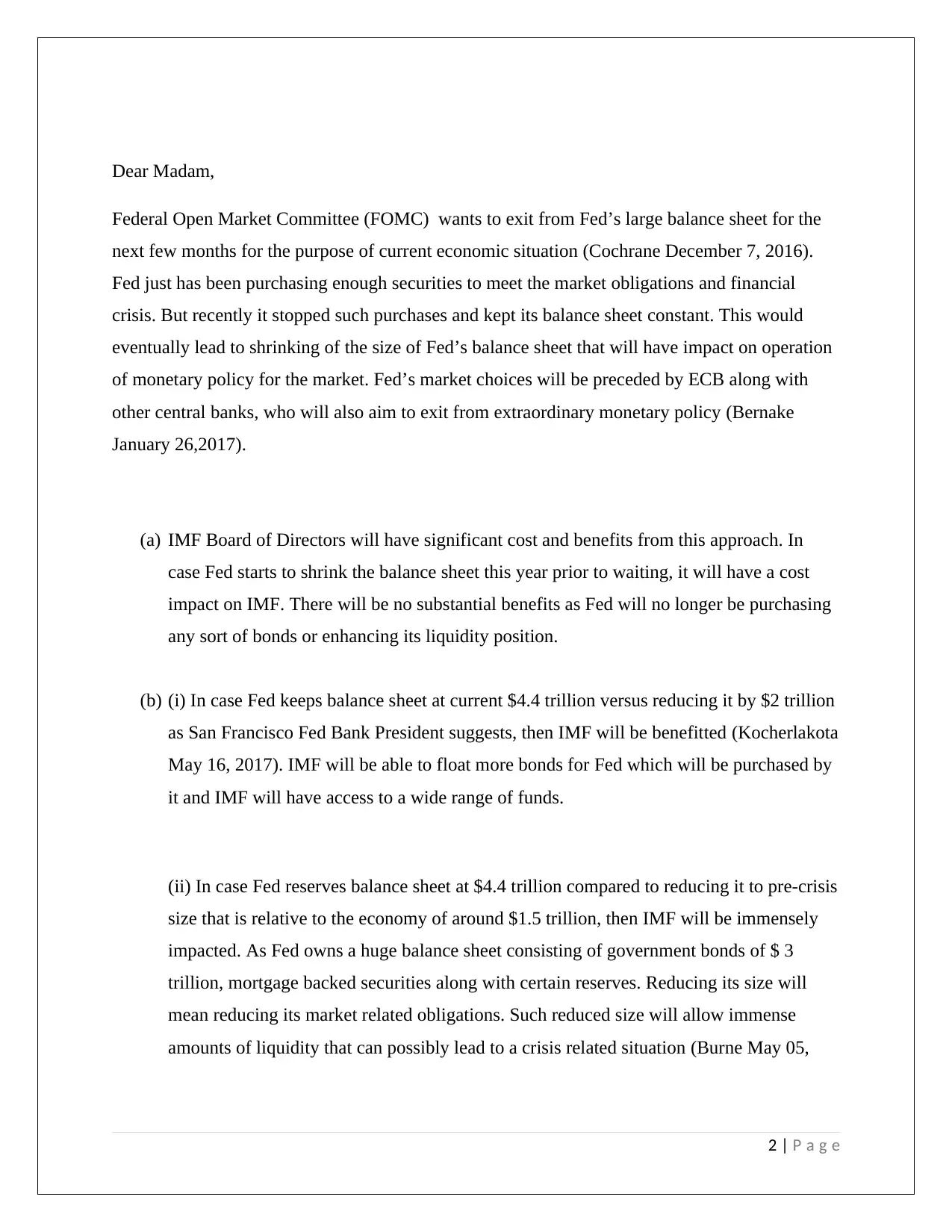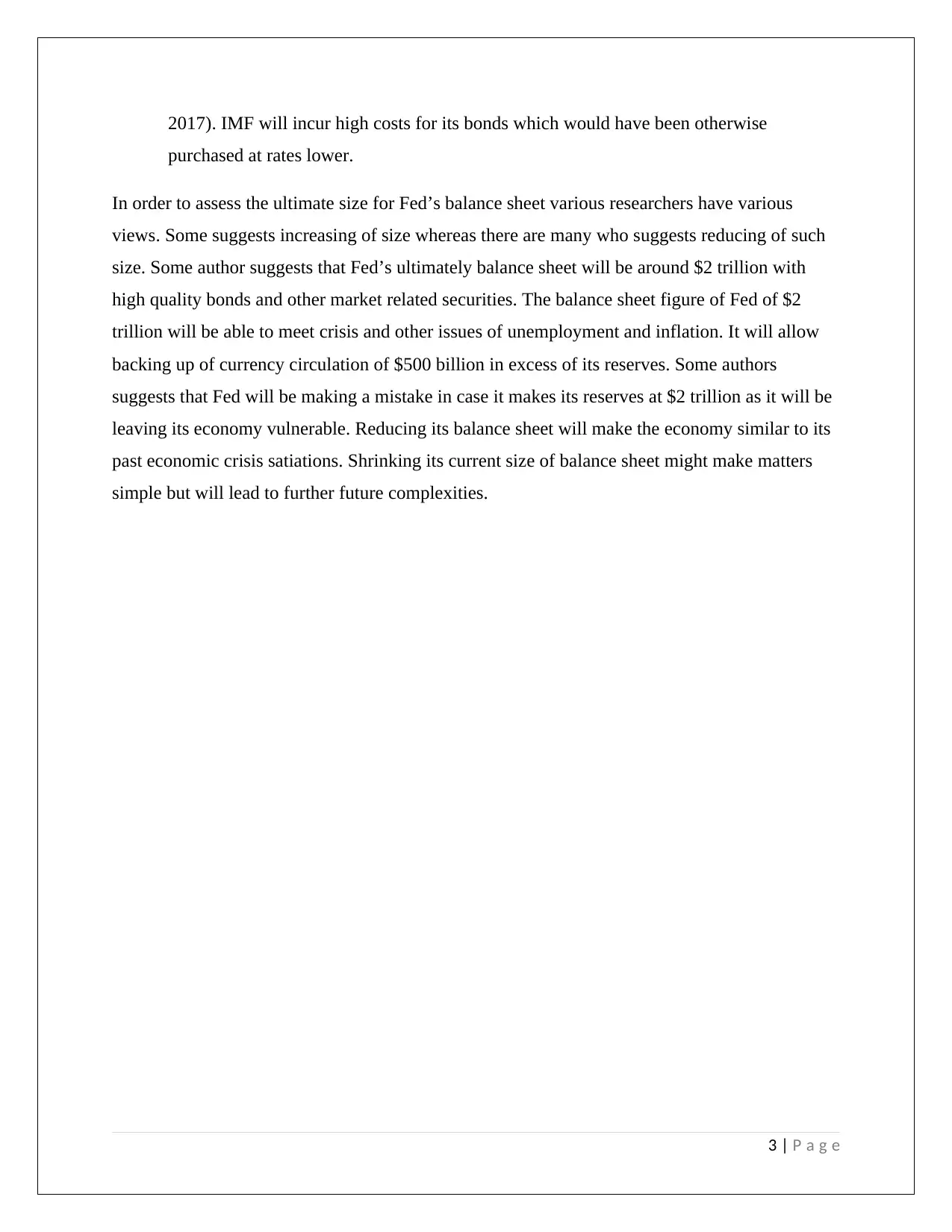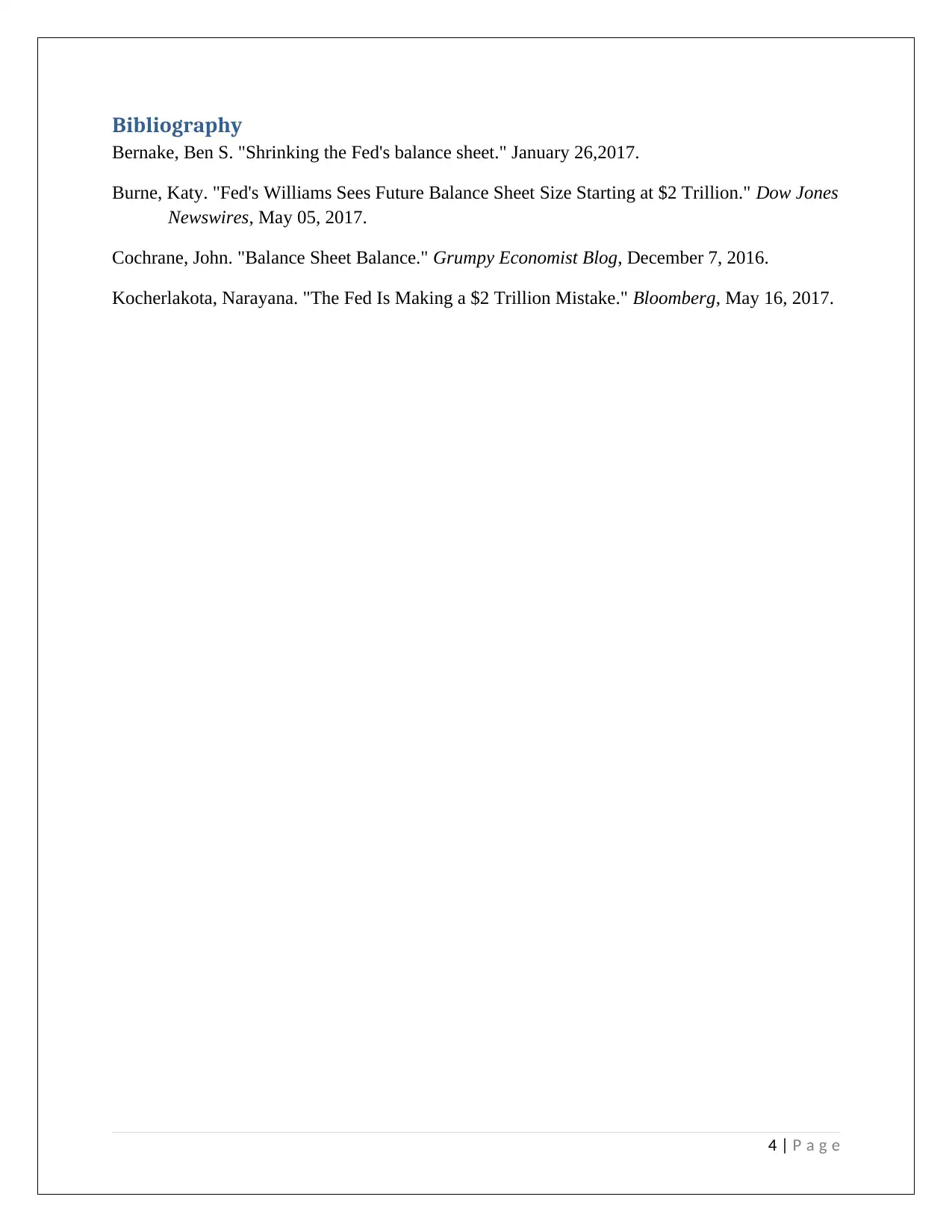University of Chicago, BUS33882: Analysis of Fed Balance Sheet Memo
VerifiedAdded on 2020/03/04
|4
|674
|57
Report
AI Summary
This report analyzes a memo discussing the Federal Reserve's (Fed) balance sheet, focusing on the implications of its size and management for the International Monetary Fund (IMF). The memo examines the potential impacts of the Fed's decisions on its balance sheet, including shrinking it from its current size, and its effects on the IMF's ability to operate and manage its financial obligations. The analysis considers various scenarios, such as the Fed maintaining a balance sheet of $4.4 trillion versus reducing it, and the implications for the IMF's bond market activities. The report also explores different viewpoints on the optimal size of the Fed's balance sheet, considering factors like unemployment, inflation, and the need to back currency circulation, while referencing several sources and authors like Ben Bernanke, Katy Burne, John Cochrane, and Narayana Kocherlakota. The memo highlights the potential costs and benefits associated with different approaches to managing the Fed's balance sheet and its subsequent impact on the economy and financial markets.
1 out of 4











![[object Object]](/_next/static/media/star-bottom.7253800d.svg)